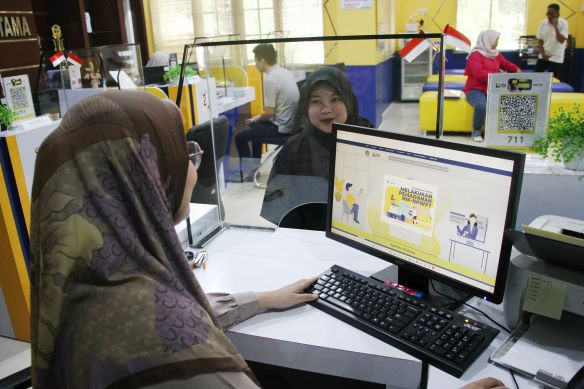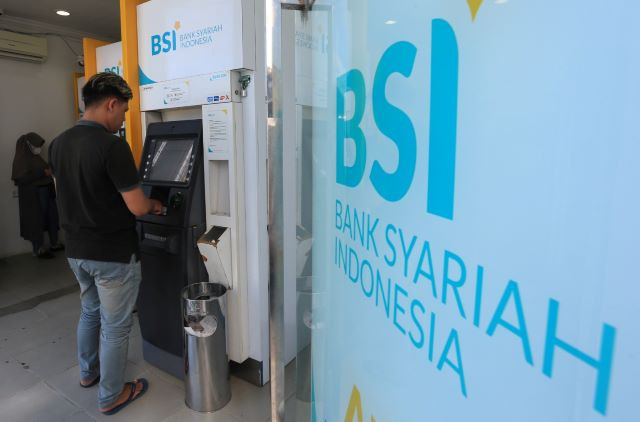Q&A: MUI’s edict on social media — too little too late?
The edict does not contain any statement against persecution and intimidation by vigilante groups.
Change Size
 In this Monday, June 4, 2012, file photo, a girl looks at Facebook on her computer in Palo Alto, California. (AP/AP Photo/Paul Sakuma, File)
In this Monday, June 4, 2012, file photo, a girl looks at Facebook on her computer in Palo Alto, California. (AP/AP Photo/Paul Sakuma, File)
T
he 2017 Jakarta gubernatorial election was the most decisive so far, with the biggest rift occurring on social media. Not only did people fortify their echo chambers by unfriending or unfollowing people with different ideologies or choices of governor, hoaxes and slanderous accusations spread freely on Facebook, Twitter and WhatsApp groups.
Even after the winner was formally announced and Basuki “Ahok” Tjahaja Purnama, whose controversial remarks triggered a series of rallies in the capital, was put behind bars, the gap did not close. Even worse, some groups have brought the rift on social media to the offline world with the use of force.
When the Indonesian Ulema Council (MUI) on Monday issued a guide for Muslims in the country on how to responsibly use social media, it was seen as too little too late.
What is the real-life impact of the rift on social media?
Some vigilante groups have taken action to intimidate those deemed as spreading insults against Islam Defenders Front (FPI) leader Rizieq Shihab. FPI and Rizieq spearheaded the series of rallies demanding the arrest of Ahok for blasphemy against Islam, the two biggest being the rallies on Nov. 4 and Dec. 2, 2016.
However, Rizieq is now a fugitive for failing to show up to police questioning over an alleged pornographic text conversation with treason suspect, Firza Husein. Jakarta Police raised his status from witness to suspect on May 29 and issued an arrest warrant on May 30. Rizieq’s lawyer, Kapitra Ampera, said Rizieq departed for Saudi Arabia on umrah (minor haj) with his family on April 27 and had not returned to Indonesia.
Last month, a viral video showing a 15-year-old boy being intimidated and harassed by a group of people claiming to be FPI members for allegedly insulting Rizieq Shihab, sparked concerns amid the ongoing online persecution of the cleric’s critics. One FPI member specifically warned the boy to tell “[his] friend of his [Chinese] ethnicity not to do it anymore, so this will not happen again,” implying future threats.
Southeast Asia Freedom of Expression Network regional coordinator Damar Juniarto said the incident was clearly part of a growing trend of persecution of social media users by the hard-line Islamist group.
The persecution does not only target people of Chinese descent, as there was also the case of Fiera Lovita, a physician at Solok Regional Hospital, who was intimidated by FPI members who accused her of defaming Rizieq on her Facebook account. The FPI members confronted Fiera at her workplace on May 23, pressuring her to delete her comments and write an official letter expressing regret for her actions.
Two men involved in harassment of the 15-year-old boy were named suspects and National Police chief Gen. Tito Karnavian replaced Solok Police chief over her inability to prevent the persecution of Fiera.
What is the content of MUI’s edict on social media?
In the 20-page guide available on the MUI website, which takes the form of a fatwa (edict), the MUI forbids Muslims from spreading hate speech, slanderous statements, hoaxes, pornographic material and racial slurs, which it deemed haram (forbidden under Islamic law).
As a consequence, it is forbidden to make money from being a buzzer on social media or producing such content for websites. Since the campaign period, many social media accounts and website have made millions by producing and spreading sensational news reports, many of which were hoaxes discrediting Ahok and Chinese-descents in the country.
There are five main activities deemed as haram in the MUI’s edict:
· Spreading hate speech and slander
· Bullying and discrimination based on race and religion
· Spreading hoaxes even with good intentions
· Spreading pornographic material
· Spreading factual content but during inappropriate times
The edict does not contain any statement against persecution and intimidation by vigilante groups. Although MUI chairman Ma’ruf Amin also said that the institution decided to take action following reports of a surge in cases of vigilantism.
Is this another restriction of free speech in the country?
Not really, although supported by the Communications and Information Minister Rudiantara MUI’s edict is not legally binding. Nevertheless, MUI chairman Ma’ruf expects that Muslims in Indonesia will abide by it.
What is the response to the edict?
Rudiantara said that the fatwa could encourage the ministry to step up its monitoring of incendiary rhetoric on social media. “The fatwa will be used as a reference for our team, which also has a representative at the MUI, to determine whether to block something on the Internet,” Rudiantara said.
Coordinating Political, Legal and Security Affairs Minister Wiranto was reported by Kompas.com as saying he appreciated the edict. Nahdlatul Ulama executive council (PBNU) chairman Said Aqil Siradj also supported the MUI’s edict, according to Kompas.com.
Elected vice governor Sandiaga Uno has also responded positively, as reported by detik.com. He admits that he often receives hoaxes and becomes target of bullying on social media. Sandiaga called on Muslims to abide by MUI’s edict, arguing that social media should be used to strengthen brotherhood among Muslims.
Tempo.co reported House of Representatives (DPR) Information Commission deputy chairman Hanafi Rais as saying the edict will strengthen the existing Information and Electronic (ITE) Law, which was regarded by many as posing a threat to the country’s democracy and freedom of speech. (dmr)









